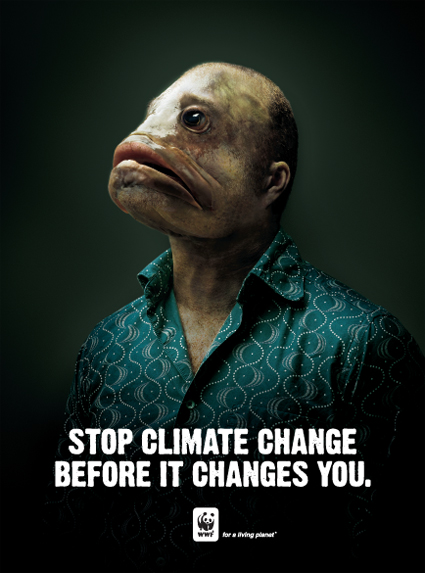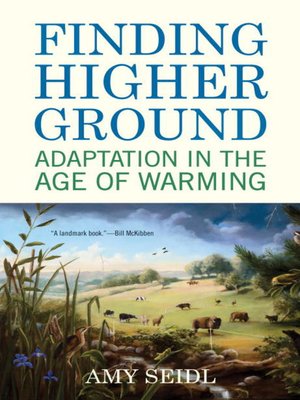Amy Seidl, Finding Higher Ground
At the 2009 ASLE conference, we brought in writer and ecologist Amy Seidl to talk about her then-new book Early Spring: An Ecologist and Her Children Wake to a Warming World. The 2013 ASLE conference is underway this week (hello, everybody!), but I'd imagine that Lawrence, Kansas, is full of people craving the same kind of hope that we were in Victoria, BC, four years ago. Amy Seidl won't be at Lawrence, if the program is to be believed, but I remain grateful for the hope she brought us last time around.
The best news for me is simply that she's still talking about hope in her new book, Finding Higher Ground: Adaptation in the Age of Warming. Technically what she's describing is "practical idealism" rather than hope, which blends both a clear-eyed understanding of the challenges facing us individually and collective as a result of climate change, with an optimism that such challenges can be honorably met through the extraordinarily potent energy of adaptation (as distinct from, but interwoven with, evolution): but it reads like hope to me, and it's an experience I regularly find that need.
It's a multi-pronged book, Finding Higher Ground, which makes sense because she's recommending an approach to climate change that is itself multi-faceted. Some readers will most enjoy the sections on specific evolutionary adaptations (red squirrels in the Yukon are having pups 18 days earlier than they did just 20 years ago; in the American Southwest, the nearly immobile pine leaf scale insect has evolved into absolute adaptation to individual branches of individual trees). Others may want to geek out about particular household changes (a ceiling-level laundry air-drier, perhaps, or a solar-powered lawnmower that directly pits one result of the sun's energy against another). Still others may prefer the memoir-style passages, about camping or pregnancy or friends' gardens.
Thing is, it doesn't matter what you'd rather focus on, because Seidl's underlying message here is that there's lots we could do -- so much, in fact, that the only important thing is taking a first step, and then continuing to walk:
 To belong to the future: it's a treat to read about climate change without feeling an overwhelming sense of either doom or guilt, and while maybe those are more appropriate responses (depending who you trust!), they're not helpful. One of the book's biggest ideas is simply to emphasize what Seidl calls "true-to-life actions" (p.82), actions that discourage one's habit of living without engagement with the people and the nonhuman around us, individually and in communities. As such, she understand true-to-life actions as deeply pragmatic, positively functional in a present-oriented vision of the future, and the concept made me relax, physically and involuntarily.
To belong to the future: it's a treat to read about climate change without feeling an overwhelming sense of either doom or guilt, and while maybe those are more appropriate responses (depending who you trust!), they're not helpful. One of the book's biggest ideas is simply to emphasize what Seidl calls "true-to-life actions" (p.82), actions that discourage one's habit of living without engagement with the people and the nonhuman around us, individually and in communities. As such, she understand true-to-life actions as deeply pragmatic, positively functional in a present-oriented vision of the future, and the concept made me relax, physically and involuntarily.
All of which brings me to the most helpful thing about this book, in my eyes at least, which is simply that it's so well written as to be a pleasure to read. It's a wonderful blend of nerdery and hope, which is precisely what I respect in the world and in friends (as long as they can also regularly swing the hammer of cynicism), but it's also just plain engaging.
ASLE friends, enjoy your time in Kansas, and be hopeful; other potential readers, you'll enjoy this book, I promise!
(Want to watch the plenaries from the 2009 ASLE conference, including Amy Seidl's? Click here!)
The best news for me is simply that she's still talking about hope in her new book, Finding Higher Ground: Adaptation in the Age of Warming. Technically what she's describing is "practical idealism" rather than hope, which blends both a clear-eyed understanding of the challenges facing us individually and collective as a result of climate change, with an optimism that such challenges can be honorably met through the extraordinarily potent energy of adaptation (as distinct from, but interwoven with, evolution): but it reads like hope to me, and it's an experience I regularly find that need.
It's a multi-pronged book, Finding Higher Ground, which makes sense because she's recommending an approach to climate change that is itself multi-faceted. Some readers will most enjoy the sections on specific evolutionary adaptations (red squirrels in the Yukon are having pups 18 days earlier than they did just 20 years ago; in the American Southwest, the nearly immobile pine leaf scale insect has evolved into absolute adaptation to individual branches of individual trees). Others may want to geek out about particular household changes (a ceiling-level laundry air-drier, perhaps, or a solar-powered lawnmower that directly pits one result of the sun's energy against another). Still others may prefer the memoir-style passages, about camping or pregnancy or friends' gardens.
Thing is, it doesn't matter what you'd rather focus on, because Seidl's underlying message here is that there's lots we could do -- so much, in fact, that the only important thing is taking a first step, and then continuing to walk:
I feel less vulnerable because the preemptive measures I take are not only empowering, they encourage me to belong to the future. (p.xiii)
 To belong to the future: it's a treat to read about climate change without feeling an overwhelming sense of either doom or guilt, and while maybe those are more appropriate responses (depending who you trust!), they're not helpful. One of the book's biggest ideas is simply to emphasize what Seidl calls "true-to-life actions" (p.82), actions that discourage one's habit of living without engagement with the people and the nonhuman around us, individually and in communities. As such, she understand true-to-life actions as deeply pragmatic, positively functional in a present-oriented vision of the future, and the concept made me relax, physically and involuntarily.
To belong to the future: it's a treat to read about climate change without feeling an overwhelming sense of either doom or guilt, and while maybe those are more appropriate responses (depending who you trust!), they're not helpful. One of the book's biggest ideas is simply to emphasize what Seidl calls "true-to-life actions" (p.82), actions that discourage one's habit of living without engagement with the people and the nonhuman around us, individually and in communities. As such, she understand true-to-life actions as deeply pragmatic, positively functional in a present-oriented vision of the future, and the concept made me relax, physically and involuntarily.All of which brings me to the most helpful thing about this book, in my eyes at least, which is simply that it's so well written as to be a pleasure to read. It's a wonderful blend of nerdery and hope, which is precisely what I respect in the world and in friends (as long as they can also regularly swing the hammer of cynicism), but it's also just plain engaging.
ASLE friends, enjoy your time in Kansas, and be hopeful; other potential readers, you'll enjoy this book, I promise!
(Want to watch the plenaries from the 2009 ASLE conference, including Amy Seidl's? Click here!)

Comments